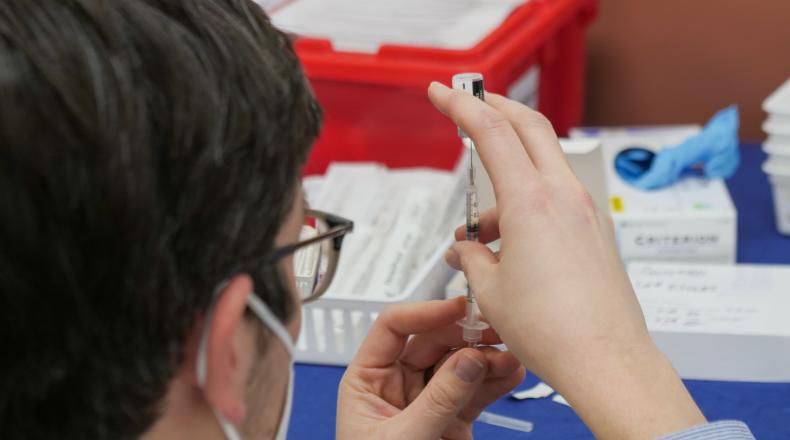Offering COVID-19 Vaccinations to Major Donors, Board Members Ahead of Schedule is Unethical, Inequitable

(Arlington, VA) The Association of Fundraising Professionals (AFP), the largest community of charities and fundraisers in the world, has released the following statement from President and CEO Mike Geiger, MBA, CPA, regarding the media accounts and stories of hospital systems offering vaccinations to major donors and board members.
“The idea of hospital systems, or any charity, ignoring protocols, guidance or restrictions—regardless of origin—and offering certain donors and board members the opportunity to ‘skip the line’ and receive vaccinations ahead of their scheduled time is unethical, inequitable and antithetical to the values of philanthropy and ethical fundraising.
AFP’s Code of Ethics is the strictest ethical code for fundraising in the world and is the only code that is enforceable with our members. The activity mentioned in these media accounts violates at least two standards of our code—by harming the reputation of the organizations involved, and conflicting with a fundraiser’s ethical obligation not to put their organization in jeopardy:
- Members shall not engage in activities that harm the members’ organizations, clients or profession or knowingly bring the profession into disrepute.
- Members shall not engage in activities that conflict with their fiduciary, ethical and legal obligations to their organizations, clients or profession.
It is also possible that these activities, depending on the particular state and jurisdiction, break certain laws or procedures that have the force of law, and thus violate the fifth standard of our Code that ‘members comply with all applicable local, state, provincial and federal civil and criminal laws.’
But most importantly, whether or not these activities are illegal, they transgress the very notion and spirit of philanthropy and are therefore clearly unethical and inequitable.
Donors are, of course, critical to the philanthropic process. Without their generosity, commitment and willingness to get involved, philanthropy and our charitable sector would not exist. Volunteer board members too are critical to the process, giving of their time to help steer the organization and often contributing financially to the organization. Charities and charitable fundraisers have a responsibility and an obligation to thank donors and board members and show their appreciation for and the impact created by the gifts they make.
But fundraisers also have other responsibilities—primarily to the causes and organizations they serve, but also to the people and communities who benefit from the charity and its programs. There is an expectation and responsibility—codified into law through Department of Treasury and Internal Revenue Service regulations—that charities will be fair and as equitable as possible with the provision of their programs, and that those programs will be provided to people with the greatest need. There is an expectation and responsibility on fundraisers to look carefully at any proposed donor-related activity to ensure it does not harm the reputation of their organization, and even more importantly, the health and wellbeing of the people they serve.
Offering vaccinations to major donors, and not to populations with the greatest need, violates these expectations and responsibilities and destroys public trust—to say nothing of the possible impact on constituents of the charity who don’t receive the appropriate vaccinations or medical attention in time.
This activity—allowing wealthy and privileged donors to gain access to vaccinations at the expense of others who have fewer resources—also perpetuates already staggering inequities in our society. We are only just beginning to address these issues as a society through various movements and the resulting discussions about fairness, justice and equality. This is especially concerning as philanthropy has been—and should continue to be—not a perpetuator of inequity, but rather a great ‘democratizer’ for our society, bringing people of all backgrounds together to rally around a cause.
AFP, and the 26,000 members in our community around the world who represent nearly every charitable cause imaginable, condemn this activity in the strongest manner possible. It is unethical and inequitable, and we call on all health systems and all providers of vaccinations to deliver this service in a manner that is fair and equitable for the people they serve and consistent with procedures developed by the Center for Disease Control and all applicable levels of government.”




